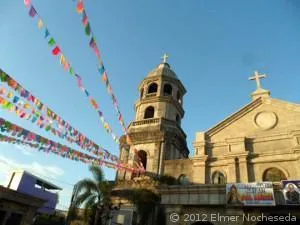Pateros, Philippines
Pateros, nestled in Metro Manila, Philippines, holds a unique distinction. Often referred to as the "Balut Capital of the Philippines," this town is famous for its century-old duck-raising industry and the local delicacy, balut (fertilized duck egg embryo)
Pateros has been a barrio and visita of the Church in Pasig since 1572. Though Pateros was made politically independent of Pasig in 1799, it took more than a decade before it became ecclesiastically independent from its mother parish. The Parroquia de San Roque de Pateros was established as an independent parish on July 7, 1815 by the joint Ecclesiastical Order issued by the Archbishop of Manila, Fray Juan Antonio Zulaybar and the concomitant Gubernatorial approval signed by Governor-General Josef de Gardoqui.

Fray Santos Gomez Marañon was the cura de almas of Pasig in 1815 who gave wholehearted support for the petition of May 3, 1815 that was signed by the 25 town leaders of Pateros to make this an independent parish. In less than one month Archbishop Zulaybar gave his approval of the petition on June 1, 1815. And by July 7, 1815 Governor-General Josef de Gardoqui issued the decree establishing the new Parish of Pateros.
Fray Andres Vehil, an Agustinian Friar, was appointed as the first Cura Parroco of Pateros on August 3, 1815. Padre Don Mariano Pelaes, a native Filipino priest became his coadjutor or assistant priest. Fray Vehil was no stranger to Pateros as he was then serving as Parish Priest of the neighboring town of Sta. Ana, Taguig since 1812. He was appointed Prior of the San Pablo Convent in Manila in 1818. He came back to Pateros in 1822 and eventually died on October 18, 1824 in the parish he founded as its first Parish Priest.
The first town fiesta was held on August 16, 1828. It was during the administration of Gobernadorcillo Valentin Tuason and the Filipino priest Padre Don Jose Beltran. It was also during this time that they were able to commission an image of San Roque that they would be using for their festivities.

